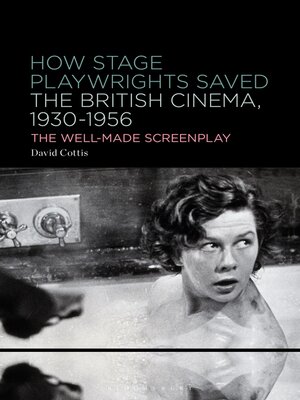How Stage Playwrights Saved the British Cinema, 1930-1956
ebook ∣ The Well-Made Screenplay
By David Cottis

Sign up to save your library
With an OverDrive account, you can save your favorite libraries for at-a-glance information about availability. Find out more about OverDrive accounts.
Find this title in Libby, the library reading app by OverDrive.



Search for a digital library with this title
Title found at these libraries:
| Library Name | Distance |
|---|---|
| Loading... |
Examines the film careers and work of British playwrights who worked as screenwriters between 1930-1956.
During the period between the 1927 Cinematograph Films Act and the 'new drama' of the 1950s, many British writers associated with the stage also wrote for films, bringing the techniques of the well-made play with them. Some, like Bernard Shaw, Noel Coward, and Terence Rattigan were screenwriter-stars, part of the publicity of the films they worked on – Pygmalion, Brief Encounter, The Way to the Stars. Others were less celebrated but had long, successful screen careers, such as R. C. Sherriff, author of Journey's End, who worked on films as different as The Invisible Man, The Four Feathers and The Dam Busters. Using the authors' original archives, this book follows the way in which these writers adapted their stage skills for the screen, contributing to the post-war 'Golden Age 'of the British cinema, and creating the classic form of screenplay that continues today.
During the period between the 1927 Cinematograph Films Act and the 'new drama' of the 1950s, many British writers associated with the stage also wrote for films, bringing the techniques of the well-made play with them. Some, like Bernard Shaw, Noel Coward, and Terence Rattigan were screenwriter-stars, part of the publicity of the films they worked on – Pygmalion, Brief Encounter, The Way to the Stars. Others were less celebrated but had long, successful screen careers, such as R. C. Sherriff, author of Journey's End, who worked on films as different as The Invisible Man, The Four Feathers and The Dam Busters. Using the authors' original archives, this book follows the way in which these writers adapted their stage skills for the screen, contributing to the post-war 'Golden Age 'of the British cinema, and creating the classic form of screenplay that continues today.







